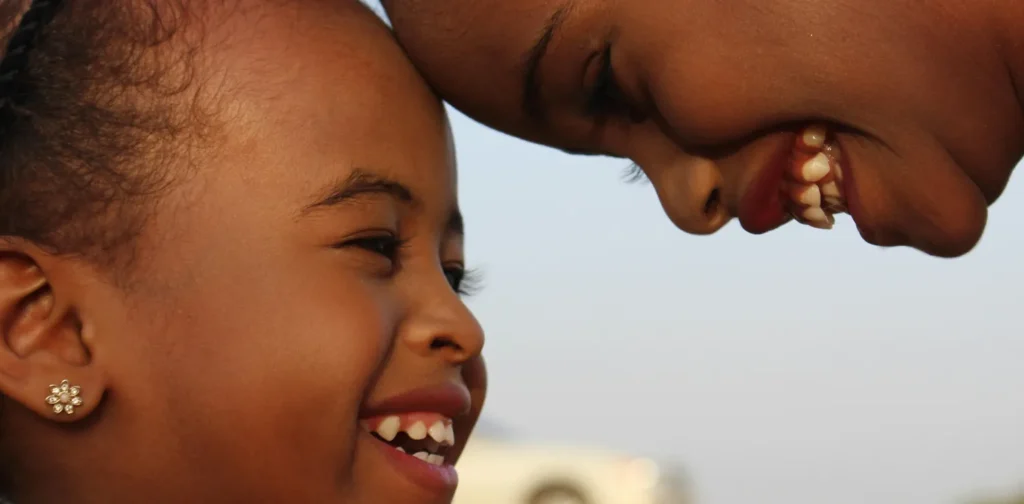Urgency to Address Adolescent Pregnancy Worldwide

Photo: Ismail Salad Osman Hajji dirir on Unsplash.
Pregnancy can be a rewarding process, yet it carries a lot of risks. Ideally, women who wish to give birth should be prepared mentally and physically. However, too many cases of unintended pregnancies still happen worldwide, especially in adolescence. Addressing the issue of adolescent pregnancy is imperative to safeguard the health and wellbeing of young girls.
A Complex Issue
Adolescent women aged 15–19 in low- and middle-income countries have an estimated 21 million pregnancies each year. Half of the pregnancies are unintended, which often end in unsafe abortions.
Adolescent pregnancy is a result of multiple complex issues. In many places, societal and cultural norms still subject girls to the burden of getting married and bearing children. Data by UNICEF shows that the estimated global number of child brides reached 650 million in 2021. Child marriage is closely associated with low levels of educational attainment. It also increases the risk of early pregnancy because these young girls lack the agency to decide on child-bearing and contraceptive use.
At the same time, contraceptives are not easily accessible to adolescents in many places. In Asia-Pacific, 34 million young women aged 15–24 years lack access to modern contraception. When they do, adolescents may lack the agency or resources to pay for them, know where to obtain them, and use them correctly.
Furthermore, the risk of adolescent pregnancy is higher due to child sexual abuse. UNICEF estimated that at least 1 in 8 children had experienced sexual abuse before the age of 18 in 2020, while 1 in 20 girls aged 15–19 years had experienced forced sex during their lifetime.
Multiple Impacts on Young Mothers
Girls who have gone through childbirth as adolescents can suffer multiple long-term health consequences. Geetu Kumari, who was pregnant at the age of 16, spoke at the Regional Dialogue on Adolescent Pregnancy in South Asia. She said, ”I never got the strength back after my cesarean section operation. I still feel weak and find it difficult to do housework and take care of my baby. I just want to be healthy again.” Her baby was born weighing only 1.5 kg and needed intensive support to live.
Moreover, adolescent pregnancy also leads to various social challenges, such as difficulties in getting back to school, unemployment, as well as stigma and rejection. In South Asia, for instance, 49% of young girls are not in education, employment, or training.
“In addition to hurdles to learn, get good healthcare, and eat nutritious food, they are denied the opportunity to build skills and start businesses—everything they need as parents to thrive and fulfill their potential,” said Sanjay Wijesekera, UNICEF Regional Director for South Asia. Therefore, ramping up support for adolescent mothers is equally crucial as preventing cases of adolescent pregnancy.
Systemic Intervention to Address Adolescent Pregnancy
Adolescent pregnancy is not only an issue of gender inequality but also a global health problem that has social and economic implications. Addressing this issue will require governments and organizations focusing on gender and health to collaborate in creating systemic interventions.
Improving the coverage and quality of sexual education for all is crucial to equip adolescents and children with the knowledge of their rights and the concept of consent and agency, as well as the skills to communicate and negotiate. It is also essential to address the societal and cultural stigma about contraception and abortion, which must go hand-in-hand with improved access and qualities of the two.
Lastly, governments must implement policies and programs that support the needs of adolescent mothers to live safely and healthily. All in all, addressing adolescent pregnancy becomes necessary in ensuring a safe and healthy world for all.
Editor: Nazalea Kusuma

Co-create positive impact for people and the planet.
Amidst today’s increasingly complex global challenges, equipping yourself, team, and communities with interdisciplinary and cross-sectoral insights on sustainability-related issues and sustainable development is no longer optional — it is a strategic necessity to stay ahead and stay relevant.

Kresentia Madina
Madina is the Assistant Manager of Stakeholder Engagement at Green Network Asia. She holds a bachelor’s degree in English Studies from Universitas Indonesia. As part of the GNA In-House Team, she supports the organization's multi-stakeholder engagement across international organizations, governments, businesses, civil society, and grassroots communities through digital publications, events, capacity building, and research.


 Indian Gig Workers Push Back Against 10-Minute Delivery Service Strain
Indian Gig Workers Push Back Against 10-Minute Delivery Service Strain  Call for Governance: Grassroots Initiatives Look to Scale Efforts to Conserve Depleting Groundwater
Call for Governance: Grassroots Initiatives Look to Scale Efforts to Conserve Depleting Groundwater  Integrating Environment, Climate Change, and Sustainability Issues into Education Systems
Integrating Environment, Climate Change, and Sustainability Issues into Education Systems  Finally Enforced: Understanding the UN High Seas Treaty
Finally Enforced: Understanding the UN High Seas Treaty  Risks and Opportunities of Submarine Communication Cables for Sustainable Development
Risks and Opportunities of Submarine Communication Cables for Sustainable Development  Rising Attacks and Violence Against Land and Environmental Defenders
Rising Attacks and Violence Against Land and Environmental Defenders